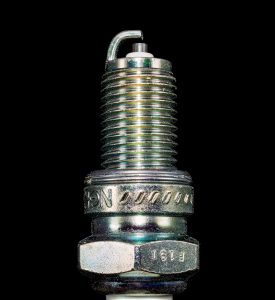Is your car’s engine misfiring? A misfiring engine can indicate several different issues, but all have one thing in common: catching and fixing the problem early can save you both time and money in the long run. Read on to learn more about the top five possible causes of misfires, why they occur, tell-tale warning signs that indicate a problem, and recommended solutions for each issue.
Have a Misfiring Engine? Learn the Top 5 Possible Causes
Spark Plugs
Worn or fouled spark plugs are one of the most common causes of engine misfires. These small but crucial components deliver the spark that ignites the fuel in your engine. If they’re not working properly, your engine won’t be firing on all cylinders. Warning signs of worn spark plugs include poor fuel economy, loss of power, and difficulty starting the engine. To fix this issue, check your spark plugs and replace them if they’re worn or dirty.
Ignition Coils
Another possible cause of an engine misfire is a bad or malfunctioning ignition coil. Ignition coils convert the low-voltage output of a car’s battery into the high-voltage punch that fires your engine’s spark plugs. A malfunctioning coil can cause a misfire in the cylinder it serves. Tell-tale signs of a bad coil are a rough idle, poor fuel economy, and a check engine light. Have a qualified mechanic take a look and replace the bad coil as necessary.
Fuel Injectors
A clogged or malfunctioning fuel injector can cause a misfire if it fails to deliver the proper fuel to one of your engine’s cylinders. Here, warning signs include a rough-running engine at idle, poor mileage, and a “Check Engine” warning light. A qualified mechanic can easily test your fuel injectors and replace any if they’re clogged or malfunctioning.
Vacuum Leaks
A vacuum leak in the intake manifold gasket or a vacuum hose can also cause an engine misfire. This kind of leak causes what’s known as a lean misfire, a situation in which there’s too much air and too little fuel in your car’s air-fuel mixture. Watch for reduced gas mileage, rough idling, and a dashboard warning light if you have a vacuum leak. A qualified mechanic has the tools to diagnose, locate and fix the problem.
Mass Airflow Sensor
The mass airflow sensor (MAF) measures the air entering the engine. Your car’s Electronic Control Unit, or ECU, uses the info to optimize the engine’s air-fuel mix. A dirty or faulty MAF causes a mix that’s either too rich or too lean, and that causes a misfire. Engines with a MAF problem will get poor mileage, run rough (or not at all), and trigger the check engine light. Have a qualified mechanic clean or replace the MAF.
It’s important to catch and fix the cause of a misfiring engine ASAP. If you’re experiencing any of the warning signs outlined here, visit DARCARS Used Car & Service Center of Frederick.




